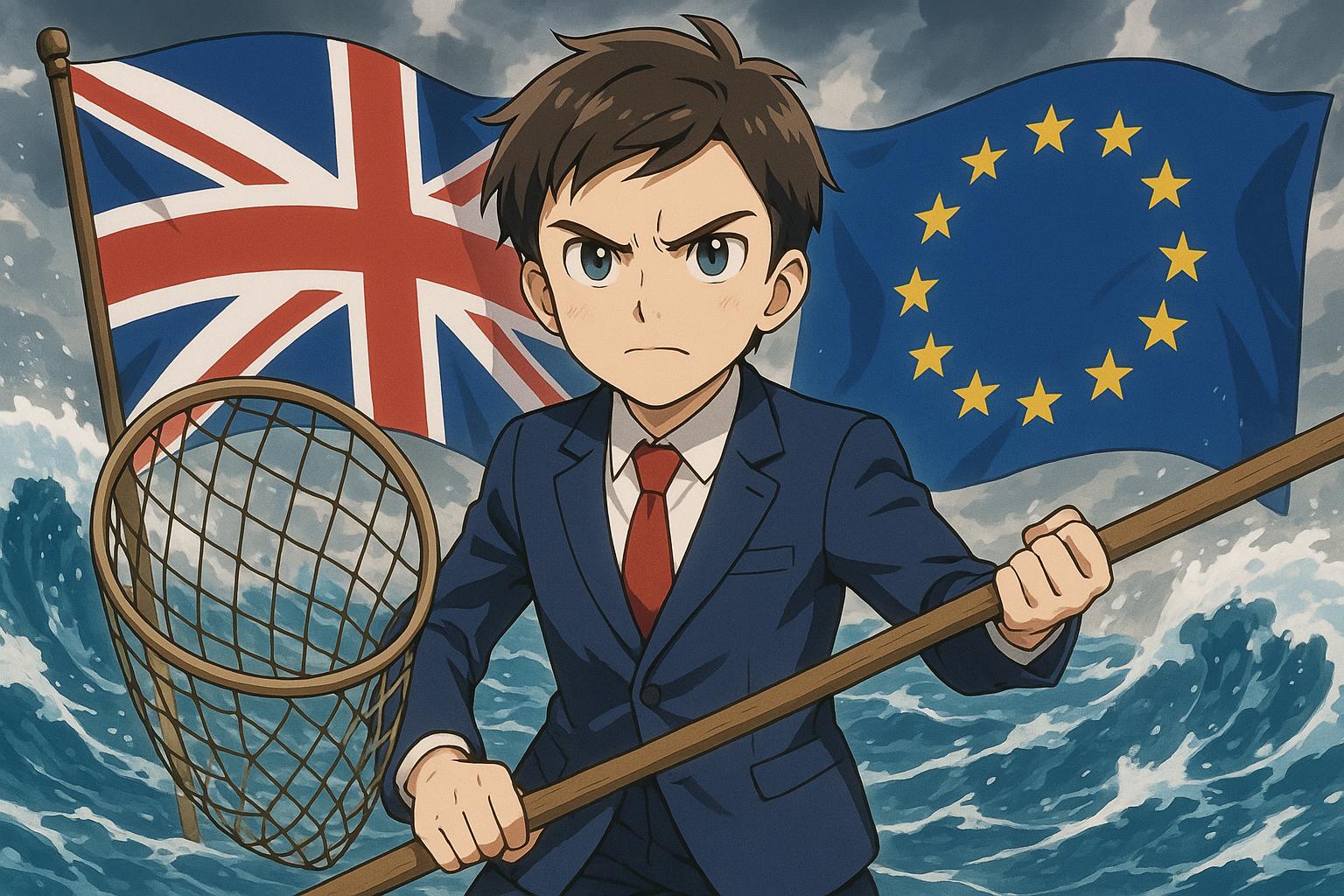As months of intense negotiations reached a conclusion, the UK and the European Union have signed a landmark agreement that marks the closest alignment between the two since the Brexit referendum. Announced by Prime Minister Sir Keir Starmer, the new deal promises significant economic benefits, potentially boosting the UK economy by £9 billion annually by 2040, according to government assessments.
However, the agreement has sparked fierce criticism, with opponents labelling it a "surrender" and a betrayal of the Brexit mandate, particularly concerning issues of food standards, court rulings, and fishing rights. Central to the controversy is a 12-year extension of access for EU fishing vessels to UK waters, which many in the British fishing industry see as a serious compromise. The extension allows EU boats to retain 75% of their current catch quotas until 2038, contrary to several expectations that the UK would reclaim full control over its waters much sooner.
Negotiators were reportedly pressed for concessions at the last minute, with EU officials linking the relaxation of trade barriers to an agreement on fishing rights. The eventual compromise blindsided UK fishing organisations that had anticipated a far shorter extension. While the lifting of restrictions on exporting certain shellfish, such as clams and oysters, was hailed as a positive development, the overall sentiment among fishermen has been one of discontent. The Scottish Fishermen's Federation described the deal as a "horror show," reflecting the depth of concern over the perceived sell-out of UK fishing interests.
In tandem with fishing rights, the deal introduces a youth mobility scheme that could see thousands of adults under 30 from various EU nations allowed to work, live, and study in the UK. Although capped in numbers and duration, critics argue this could signify a return to a form of free movement, eroding one of the key tenets of Brexit. Additionally, discussions about re-joining the Erasmus programme have been revived, highlighting a shift that could cost the UK millions.
Importantly, the agreement includes provisions for the UK to align with EU food standards and regulations, with critics pointing out that this dynamic alignment could re-establish the UK as a "rule-taker," undermining the sovereignty that many sought to regain through Brexit. This alignment aims to ease trade in agricultural products, slashing red tape that has stifled exports since the UK’s split from the EU. The government asserts that these measures will ultimately lead to lower prices for consumers in supermarkets.
The deal extends beyond trade, also establishing a security and defence partnership that allows UK firms greater access to a €150 billion EU military procurement fund. This aspect of the agreement could see British companies like BAE Systems involved in EU defence projects, however, it raises concerns among some who fear it might drift towards closer military integration with the EU.
Travellers from the UK can expect reduced wait times with the reinstatement of e-Gates in European countries, a logistical improvement that addresses past frustrations surrounding border access.
This comprehensive agreement, while greeted enthusiastically by some sectors, illustrates the delicate balancing act required by the Starmer government. With fervent opposition from hard-line Brexiteers and questions surrounding the implications of these coordinated approaches, the reality of lasting cooperation with the EU remains contentious. Labour's strategy appears carefully crafted to maximise economic benefits while judiciously navigating the complex political landscape, which is fraught with differing views on the future of the UK’s relationship with Europe.
As the dust settles on this pivotal agreement, the long-term implications for UK sovereignty, economic resilience, and social mobility continue to be hotly debated, underscoring the challenges that lie ahead in post-Brexit Britain.
Reference Map
Source: Noah Wire Services
